Syrian filmmaker Soudade Kaadan is a jury member of this year’s prestigious 81st International Venice Film Festival, the world’s oldest film festival. Born in Paris and raised in Damascus from the age of eight, Kaadan attended the Higher Institute of Dramatic Arts in Syria, where she studied theater criticism as there were no film schools. For her master’s, she landed a scholarship to study theatre at Saint Joseph University in Beirut, where she soon switched to film studies. Kaadan’s debut in 2008 was the experimental documentary short, Two Cities and a Prison. Next she developed two television documentaries for Al Jazeera: Looking for Pink (2009) and Damascus Roof and Tales of Paradise (2010), followed by Obscure (2017), a documentary feature filmed in stages over six years. In 2018, Kaadan released her first feature film, The Day I Lost My Shadow, which premiered at the 75th Venice Film Festival and won the Lion of the Future Award for a Debut Film. Her next narrative short film Aziza, a black comedy, won the Short Film Grand Jury Prize at the 2019 Sundance Film Festival. Soudade Kaadan’s most ambitious effort yet, the feature length drama Nezouh, won the Venice Film Festival’s Audience Award in 2022, making her the only Arab female director to win twice in Venice.
Jordan Elgrably
Soudade, you’re a filmmaker from Syria — an Arab woman filmmaker at a time when to be Arab or Muslim, as we see with the war on Palestinians in Gaza, Arabs and Muslims are so dehumanized. With the US and Europe basically supporting Israel’s war on the Palestinians in Gaza, does this make you want to speak up and speak out more, or do you feel more driven to find universal stories to tell?
SOUDADE KAADAN
It’s both. First is an urgency to tell our part of the story, our version of history, our vision. Often when we see films coming from the west, they’re mostly their vision, it’s their point of view, their version of history. It’s not our voices and not how we see the world. Every time I see a film that represents us falsely, even if it’s a masterpiece, I immediately get furious. I immediately want to say, this is urgent now more than ever to make my film, because I want to say something different. I want to change the narrative, and it’s a very difficult endeavor because we rely on financing from the west. There is very little film financing in the Arab region, so how do we tell our own stories, from our own point of view? Going with western financing implies complex, diplomatic struggles that a [US/EU] film director may not have to deal with, which is one less hassle.
So this is the first thing, the urgency, the importance, the lack of stories and narratives that support our point of view. Secondly, of course, I would like to work on more universal stories, if they’re good and strong, because as a film director, I would like to enjoy filmmaking. I enjoy my craft. I enjoy working with a team. And we should have the luxury also to tell stories universally, but we don’t, unfortunately. Until now, everything I’m doing is an urgent story that is meant to change how we are perceived. I was hoping that in the later stages of my career, I could balance things out, and where you have more Arab filmmakers, and we feel safer than we can have the luxury to tell stories that are just universal. At the end of the day, we’re all human beings, and we’re all connected.
The Markaz Review
You show Syrians as human beings in your films like any other people. And yet, when we look at the world reaction to the Russian war on Ukraine and compare that world reaction to the war on Syria, it seems there’s an enormous gulf of difference, to the point where you had European politicians saying openly, “Ukrainians are like us, Muslims are not.” We observed that while Ukrainian refugees were warmly welcomed, Syrian refugees were usually rejected.

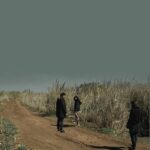
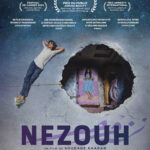


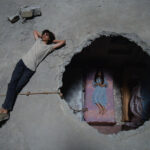
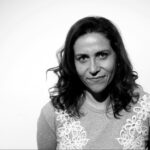
SOUDADE KAADAN
What’s happening in Ukraine is a disaster, and despite what has happened to us as Syrians, everyone sympathizes and supports Ukraine and the right to claim refugee status. We experienced this as Syrians, because the same oppressor who’s now destroying hospitals and schools in Ukraine are the same people who destroyed and who helped arm the Syrian regime, and have had military bases in Syria. So, we have the same enemy. It’s frustrating and sad to see how differently Syrians were treated, as if Muslim refugees are a threat and a danger, while Ukrainians are not. This is why I made Nezouh, for example. I wanted to show that in the end, a Syrian family looks exactly like you. You can love with them, cry with them, they’re complex human beings and they look exactly like you, a family in trouble, caught up in war, who don’t want to leave their country. When I started writing Nezouh, people were saying, “we don’t want any more refugees,” and this was even before the war in Ukraine, after the first year of welcoming refugees around the world, which is what’s great, especially in Germany. They welcomed around a million refugees. I wanted to show how difficult it is to make the decision to leave the country you call home.
The Markaz Review
Do you think that there is a tendency of western audiences when watching films about Syria or other films set in the Arab world in general, to expect to learn everything they need to know in one go, as if their interest only encompasses one Arab film, rather than many, to understand maybe a complex subject, such as the cultural history of another country?
SOUDADE KAADAN
Definitely, and this is something I always talk about, defending our rights as filmmakers, as storytellers, to tell human stories and not simplify the narrative. Telling the story of Syria as a war over 10 years, in a two-hour film, whatever the film, thinking that this is the only truth, is limiting to the country, to the culture, to the complexity of the nation. Again, western audiences go to watch Arab films to understand some countries as if they are a book or an article, as if they are essays or something, when you need several films, books, and points of view to understand what’s happening. Imagine you want to get the complexity of the UK, for instance? When we go see a British film, we don’t expect to understand all about Brexit. I don’t expect UK filmmakers to explain everything happening in the UK. I go and search individually to understand what’s happening, and then I go as a cinema lover, to watch a film, enjoy it, and to understand this filmmaker’s point of view.
The Markaz Review
Of course, the conflict here is that western audiences are not very interested in us, in our stories. They might go and see one Arab film in a year, or maybe two. They might see a Palestinian story, or a Syrian story, but you know, somehow I feel, and other editors and writers that I work with at The Markaz Review, feel that our stories are just not as important or as interesting, as relevant as, for example, a French, American or British writer. There’s that the gap.
SOUDADE KAADAN
There is a gap, and this is our struggle, and we should fight against it. We should try with each film to gain new audiences. I don’t believe our stories are less attractive, though we may be working from a place of disadvantage. For example, audiences are not aware of the context. Our movie stars are not their stars. Our language is not an accessible language in the west and people are lazy when it comes to reading subtitles. So we work with people they don’t know, for example, Nezouh features actors who are stars in the Arab world.
But we shouldn’t be discouraged. Our stories are competitive and attractive. I feel that every Arab film that makes it, opens the door for another Arab film, and that feeling of community is important for us as filmmakers. This is why I believe in community. I believe our films actually ask questions, and our duty as filmmakers, I think, is actually going to the audience with questions that make them more curious about our story and region, rather than going with answers. Questions will open windows and doors, to think differently. We are not here to give information, to be informative, to be analysts. Each medium has its function; our duty as cinéastes and cinephiles is actually to ask questions, to have curiosity, to make people more curious to understand, and finally to connect on the human level.
The Markaz Review
You were born in France, grew up in Damascus, and you’ve been living in London for the last four years. Do you have an emotional or intellectual connection to life in Europe? Do you think that you’re going to continue to focus your writing and filmmaking on Syrian stories, or do you think that you’re going to also reflect what’s going on, in London or somewhere in Europe?
SOUDADE KAADAN
Of course, I’m part of the experience of the country I lived in. I was born in Paris, lived for eight years in Paris, then went to Damascus, and lived there until I went to Beirut when the war started. I spent 10 years in Beirut and moved to London in 2020. I have the cultural experiences of those countries, and they are part of my films, and I’m proud of it, all while being Syrian. I believe in hybrid identity. But then there’s one story that is more urgent. Because I lived most of my life in Syria, of course, I will have the Syrian elements in my personal writing. But when I’m seeking stories from people, when they send me scripts, I don’t ask them to send me a Syrian script, because I will write my own stories about Syria. What I’m interested in is what I can write, or what someone can add as a writer.
The Markaz Review
Do you write your screenplays first in Arabic and then translate them into English?
SOUDADE KAADAN
Until recently I would write in Arabic, and then translate into English and French to help with the financing. But now, because we’re living in London, when I’m writing, we have both languages, English and Arabic, because each language has its own universe. I believe languages have individual universes and affect the personality and structure of everything you’re writing somehow. For instance, when I tried to have only the Arabic language in a story set in London, it didn’t work out, nor did it work out entirely in English. I’ve woven both languages into the new script I’m writing.
The Markaz Review
Is there anything in your view that characterizes an Arab filmmaker from other filmmakers, any particular markers or difficulties Arab filmmakers deal with?
SOUDADE KAADAN
We definitely don’t have the same challenge; our struggle is larger. First, we don’t have financing in the Arab region to make our films, as I told you. So we seek financing outside to convince others of our point of view, and what we want to study about this region. Secondly, we have to find our audiences—we don’t have many cinemas, movie houses in the Arab region. When you have countries constantly at war like Syria, Lebanon, Palestine, or civil turmoil in Algeria, we don’t have cinematic releases in the same way you do in western countries. We just don’t have a lot of movie theaters to show movies in. And so we’re missing our audience. My challenge is I have to reach the local audience, the regional audience and the western audience. If I’m not authentic and sincere, I would feel fake as a director. So for me, it’s a priority to be authentic and to reach out to local Arab audiences.
The Markaz Review
I really enjoyed Nezouh, and The Day I Lost My Shadow. Your films focus on the stories of women and girls and I want to ask you about that. In Nezouh, for instance, we see the camera follow Zeina and her mother, daughter and mother. They are the characters who change the most, while the father seems to remain kind of stuck in his vision of life, because he insists on staying in the family home, not leaving the country. while for safety and a future, the women want to leave Damascus. Of course, there is the troubling dynamic of becoming a displaced person, and we understand he doesn’t want to be a displaced person, but the women are the ones who are like, okay, they’re ready to go, to change, to move.
SOUDADE KAADAN
I believe all my characters change in the film, but the camera stayed with the women in the story and that’s why you see the women changing. In the end, the father also changed, when he realized that he lost his family, after his wife and daughter left. Suddenly, he changes completely, he goes running, and he says that he made many mistakes. He brings with him the fishing rod, which is the symbol in the film of women’s work and independence. The father brought it at the end, as to say that he too has changed.
The Markaz Review
When you’re not working on putting together a feature film like Nezouh, what are what are you doing? Are you do you still make documentaries? How do you how do you keep yourself busy?
SOUDADE KAADAN
I’m not much good in nine-to-five jobs, I only work on my films. I do a lot of training workshops, and guest speaker lectures, beside my work as a film director. I’ll be giving a workshop at Carnegie-Mellon University in October, in Pittsburgh. I’m also working on a documentary, an art house documentary about a kid who refuses to speak because of trauma and refuses to remember what’s happening to him.
The Markaz Review
Can you see yourself branching out beyond realistic films, perhaps making fantasy films or exploring other genres, or are you going to stay close to realism with a little touch of magic realism?
SOUDADE KAADAN
I feel like I explore a different genre with each new film I work on. I think each story takes you somewhere, and each state of mind and emotional experience is unique. Years after working with magic realism, I discovered that part of the trauma, and the thing about magic realism is that it lets you express what you can’t express in words. When I wrote Nezouh and finished the script in 2018, I sent it to someone who was in the besieged area in the same area in Damascus. I wanted to make sure that the soldiers in my story were speaking correctly, that I got the details right. This person got back to me and commented, “Yes, we used to see the sea, we used to see the sea amid destruction while looking out the window.” That took me by surprise, because I didn’t send him the script to tell me about this magic realism moment that I thought I created.
The Markaz Review
How do you think your sensibilities as a Syrian Arab filmmaker will come into play when you’re on the jury of the Venice Film Festival?
SOUDADE KAADAN
I think it’s important to be invited. I’m honored because it somehow honors your journey as a filmmaker to be part of the Venice Film Festival family, to come as a jury member and a privileged guest, to watch films and to have a voice. It’s important not only to make and exhibit our films, but to also have a voice in discussing films in the international venues, and to share our point of view. It matters to me as a woman filmmaker, and personally as I feel that it honors my career.
—Jordan Elgrably



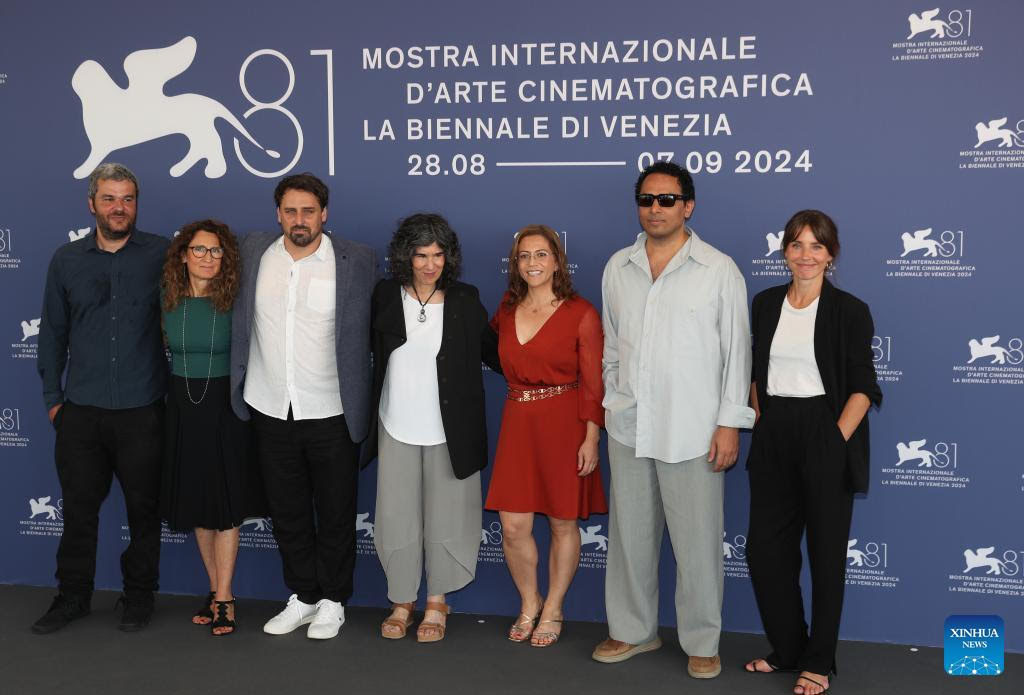


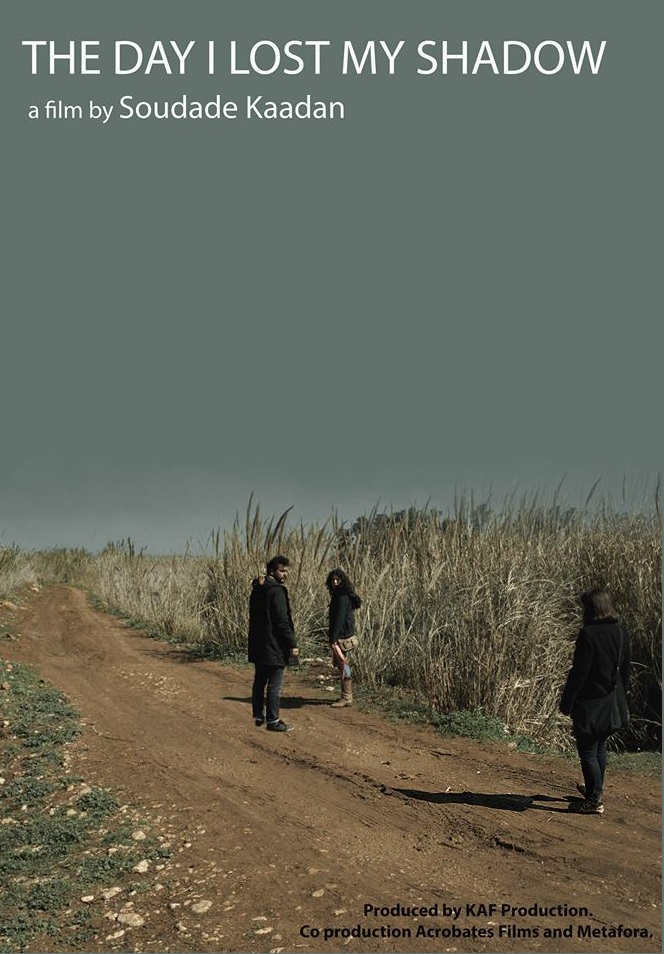



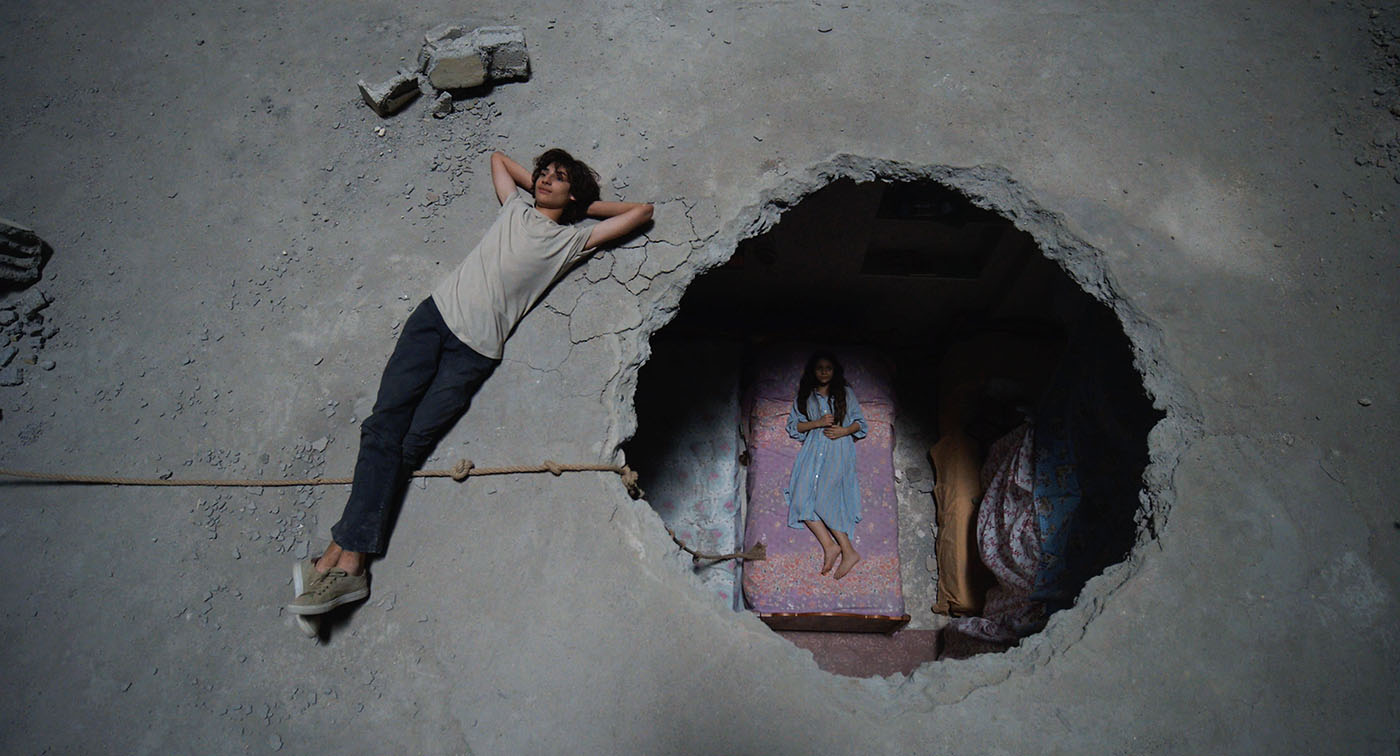
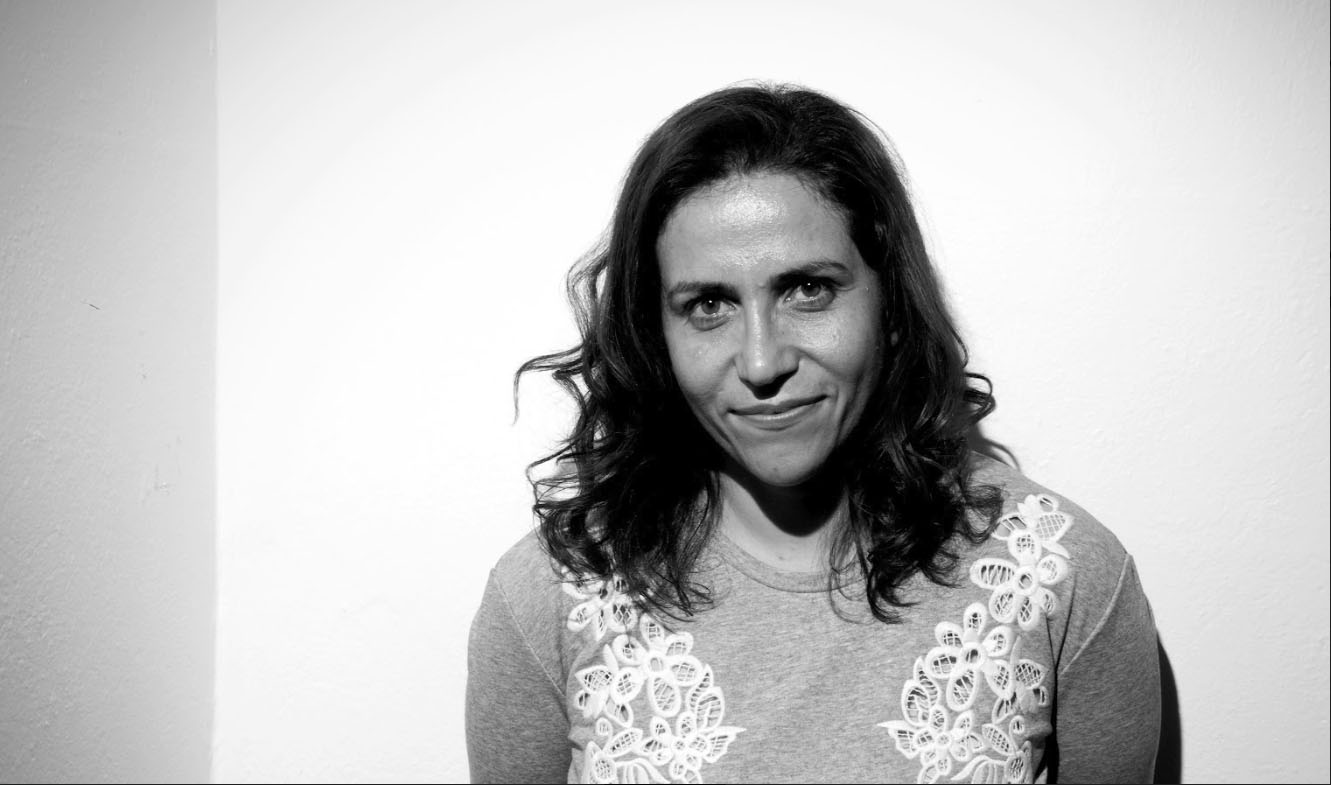
What a privilege to overhear this conversation. If it were not for The Markaz Review most of us would never hear of SOUDADE KAADAN. Keep up the good work, both of you.